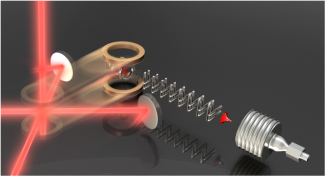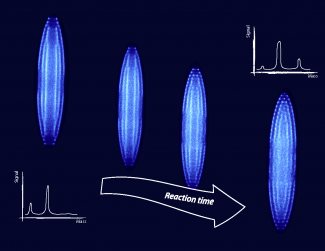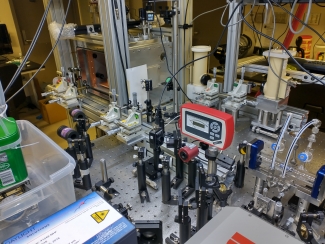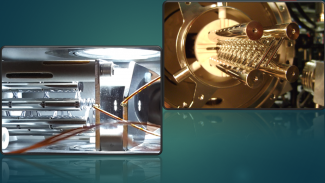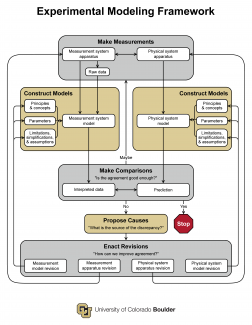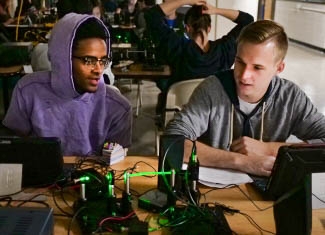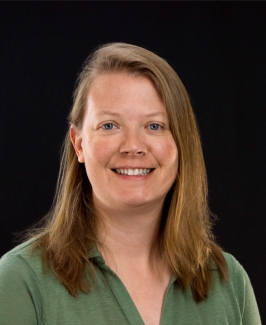
Our group works in two distinct, but complementary, areas of science, experimental cold molecular physics and physics education research. Both of these areas are inherently interdisciplinary in nature, where we bridge traditional boundaries of physics, chemistry, and social science. For the first area, we cool and trap neutral and ionic molecules to explore how controlling the internal quantum states and translational motion can impact how they interact and react. We also take advantage of cooling molecules to be able to perform high-resolution spectroscopy to elucidate complex molecular structure. The second area of research focuses on developing understanding of how students learn experimental physics. We apply the new knowledge to improve undergraduate and graduate education in experimental and laboratory physics.
We are currently looking to hire a graduate student to work on our cold ion-molecule reaction project (May 2024 start date). Please contact Heather Lewandowski (lewandoh@colorado.edu) ASAP if interested.





